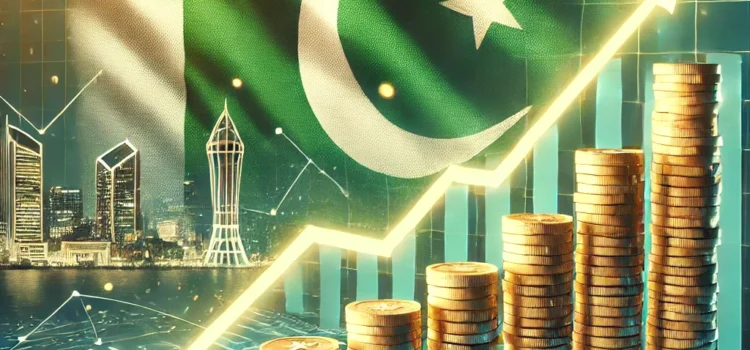Pakistan has made notable progress in stabilizing its economy and strengthening external financial buffers, according to a recent report by global credit rating agency Fitch Ratings. In its latest assessment, Fitch acknowledged the country’s improving economic trajectory, citing key structural reforms and fiscal measures that have contributed to a more stable outlook.
Fitch Upgrades Pakistan’s Credit Rating
Last year, Fitch upgraded Pakistan’s long-term foreign-currency issuer default rating (IDR) from CCC to CCC+ following the country’s agreement with the International Monetary Fund (IMF). Despite this improvement, the CCC rating still indicates a speculative or junk-grade status, reflecting a high risk of default on debt obligations.
The agency emphasized that Pakistan’s ongoing economic reforms will be crucial for upcoming IMF program reviews and securing continued financial assistance from multilateral and bilateral lenders.
Declining Inflation and Monetary Policy Measures
One of the significant improvements highlighted by Fitch is the country’s disinflationary trend. Inflation has seen a substantial decline, easing to 2.4% in January 2025, marking a nine-year low. This drop is primarily attributed to falling prices of perishable food items and the central bank’s tight monetary policy stance, which has helped stabilize the exchange rate and curb inflationary pressures.
Fitch stated that rapid disinflation reflects fading base effects from earlier subsidy reforms and exchange rate stability. The stringent monetary policies have also subdued domestic demand and reduced external financing needs.
Economic Growth Outlook
Pakistan’s economic activity is gradually improving as stability returns and interest rates decline. According to Fitch, the country’s real value-added growth is expected to expand by 3.0% in FY25. Additionally, credit growth to the private sector turned positive in real terms in October 2024, marking the first time since June 2022 that this key economic indicator has shown improvement.
Current Account Surplus and Foreign Reserves
Fitch also highlighted the positive developments in Pakistan’s external accounts. The country recorded a current account (CA) surplus of $1.2 billion (over 0.5% of GDP), driven by strong remittance inflows, robust agricultural exports, and stringent economic policies. Foreign exchange market reforms in 2023 played a crucial role in facilitating this shift.
Moreover, Pakistan’s gross official foreign exchange reserves reached $18.3 billion by the end of 2024, covering approximately three months of external payments. This marks a significant increase from $15.5 billion in June 2024, outperforming targets under the IMF’s $7 billion Extended Fund Facility.
Challenges Ahead: External Financing Risks
Despite these positive economic indicators, Pakistan faces substantial external financing challenges. The country must repay over $22 billion in external debt obligations in FY25, including nearly $13 billion in bilateral deposits.
Securing external financing remains a major challenge due to large debt maturities and existing lender exposures. Last month, Pakistan secured a $1 billion loan from two Middle Eastern banks at an interest rate of 6-7%, as confirmed by the finance minister. Additionally, the central bank has set a target to raise up to $4 billion from Middle Eastern commercial banks by the next fiscal year.
Pakistan is currently undergoing economic reforms under the $7 billion IMF program, with its first review scheduled for later this month. Fitch has cautioned that any deterioration in external liquidity, such as delays in IMF reviews, could negatively impact the country’s credit rating.
Conclusion
While Pakistan has made commendable progress in restoring economic stability and strengthening external reserves, significant challenges remain. The success of upcoming IMF reviews, continued financial support from international lenders, and effective economic reforms will be key determinants of Pakistan’s long-term economic outlook. Maintaining fiscal discipline, boosting investor confidence, and ensuring sustainable economic growth will be essential for securing a stable and prosperous future.






